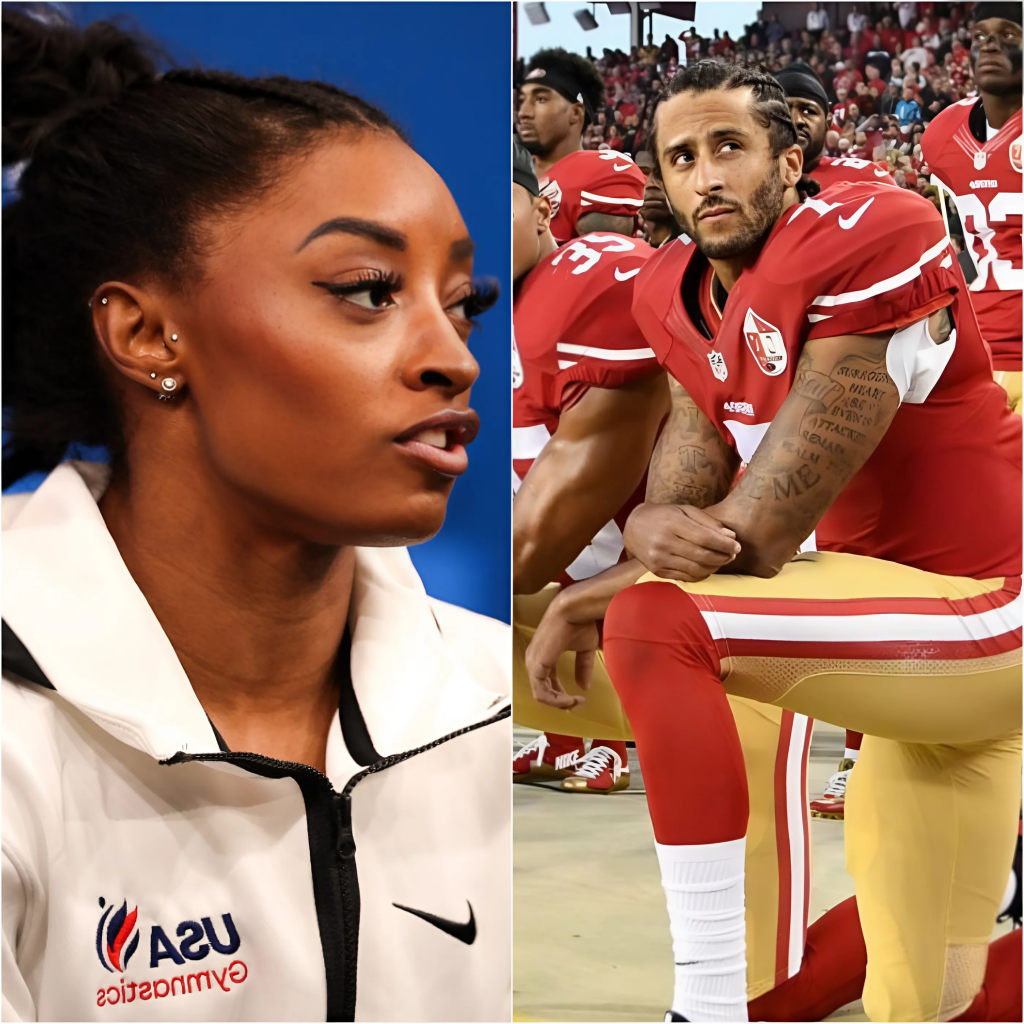
The debate surrounding Simone Biles’ petition to punish U.S. Olympic flag bearers who kneel during the national anthem is deeply entangled in broader cultural and political issues, adding layers of complexity to an already contentious topic. Over the past several years, the United States has become increasingly polarized on matters of race, identity, and patriotism. The simple act of kneeling during the anthem has evolved into a highly charged symbol in these larger cultural conflicts, with each side of the debate using it to signal their stance on fundamental societal issues. Simone Biles, one of the most recognizable athletes in the country, finds herself at the epicenter of this controversy. Her petition reflects the profound complexities and tensions inherent in the ongoing national debate about race, social justice, and the role of public figures in addressing these issues.
It’s crucial to understand that Biles’ petition is happening at a time when the Olympics, traditionally seen as a global stage for athletic competition, have increasingly become a platform for political and social expression. The International Olympic Committee (IOC) has long grappled with how to balance the apolitical nature of the Games with the reality that athletes, as influential global citizens, often bring their personal and political beliefs to the forefront. In recent years, the IOC has faced mounting pressure to revise its rules regarding political gestures, such as kneeling during the anthem, with many arguing that athletes should be free to use their platform to advocate for change. These rules, which were once strictly enforced, have evolved in response to changing global attitudes surrounding activism and the expectations placed on athletes.

Biles’ stance, then, can be viewed as part of a much larger conversation about the intersection of sport and politics. For some, her petition represents a necessary defense of national honor and unity. They argue that kneeling during the anthem disrespects the sacrifices made by servicemen and women, and by extension, the values that the flag symbolizes. To them, Biles’ call for accountability reflects a commitment to preserving the integrity of national symbols and ensuring that athletes adhere to a shared sense of respect for their country. On the other hand, critics of Biles’ position believe that her petition infringes upon athletes’ freedom of speech and expression. These individuals view the act of kneeling as a legitimate form of protest, one that brings attention to the systemic issues of racial inequality and injustice that persist in the United States. From this perspective, Biles’ request to punish athletes for kneeling can be seen as a failure to recognize the importance of these protests and the valid grievances they aim to address.
As the 2024 Olympics draw near, this issue is likely to remain a contentious and defining aspect of the Games, shaping not only the narrative surrounding the athletes involved but also the broader conversation about the role of sports in social and political movements. The debate over whether athletes should be allowed to use their platform for activism is one that continues to evolve, reflecting larger societal tensions around race, freedom, and patriotism. For Biles, whose legacy as a decorated gymnast already stands as a testament to her influence in the sporting world, this petition marks another chapter in her public life, one that intertwines her personal beliefs with the broader cultural landscape.
The ultimate outcome of this debate will likely depend on how the international community, the IOC, and the athletes themselves navigate the delicate balance between free expression and the perceived sanctity of national symbols. What remains clear is that the conversation surrounding political gestures in sports, particularly in the high-profile environment of the Olympics, will continue to play a significant role in shaping public discourse. Whether or not Simone Biles’ petition succeeds in influencing Olympic policy, it undeniably serves as a powerful reflection of the ongoing challenges athletes face as they navigate their roles as both sports figures and agents of social change.


